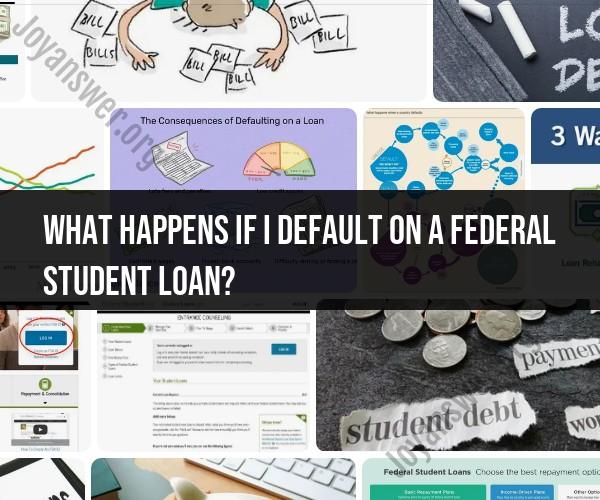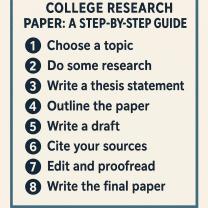What happens if I default on a federal student loan?
Defaulting on a federal student loan can have serious consequences. If you fail to make payments on your federal student loan for an extended period, typically 270 days or more, the following may occur:
Credit Damage: Your loan will be reported as delinquent to credit reporting agencies, which will damage your credit score. This can make it more difficult to obtain credit cards, loans, or mortgages in the future.
Collection Efforts: The federal government or its contracted collection agencies may initiate collection efforts to recover the outstanding debt. This may include phone calls, letters, and legal actions.
Wage Garnishment: The government can garnish a portion of your wages without a court order. Generally, up to 15% of your disposable income may be garnished.
Tax Refund Offset: The IRS can intercept your federal income tax refunds to put toward your defaulted student loan debt.
Loss of Federal Benefits: Defaulting on a federal student loan can result in the loss of eligibility for future federal student aid, including grants and loans.
Collection Costs: Additional collection costs, including court costs and attorney's fees, may be added to your debt.
Loss of Deferment or Forbearance Options: Defaulted loans may not be eligible for deferment or forbearance, which are temporary pauses on loan payments during financial hardship.
Impact on Co-signers: If someone co-signed your loan, they may also be subject to the consequences of default.
To avoid these consequences and address default, you have several options:
Loan Rehabilitation: You can rehabilitate your loan by making a series of on-time, agreed-upon payments to bring your loan out of default. This may remove the default notation from your credit report.
Loan Consolidation: Loan consolidation combines your defaulted loans into a new Direct Consolidation Loan, allowing you to make affordable payments based on your income through an income-driven repayment plan.
Settlement: In some cases, you may be able to negotiate a settlement with the U.S. Department of Education to pay a reduced amount to satisfy the debt.
Repayment Plan: You can set up a new repayment plan, such as an income-driven plan, which bases your payments on your income and family size.
Loan Discharge: Under certain circumstances, you may be eligible for a loan discharge or forgiveness. For example, if you become totally and permanently disabled or if the school you attended closed while you were enrolled.
It's crucial to address your defaulted federal student loans as soon as possible to avoid further financial and credit repercussions. You can contact your loan servicer or the U.S. Department of Education for guidance on the best option for your situation. Loan rehabilitation and loan consolidation are common ways to address default and regain control of your student loan debt.
Defaulting on a Federal Student Loan: Consequences and Solutions
Defaulting on a federal student loan can have serious financial consequences. It can damage your credit score, make it difficult to qualify for future loans, and lead to wage garnishment and tax refund offset.
Understanding the Ramifications of Student Loan Default
If you default on a federal student loan, the following consequences may occur:
- Your loan will be accelerated, meaning that the entire balance of your loan will become due immediately.
- You will no longer be eligible for deferment or forbearance.
- You will no longer be eligible for federal financial aid.
- Your loan will be reported to the credit bureaus, damaging your credit score.
- The government may garnish your wages or offset your tax refund to repay your loan.
- You may be sued by the government.
Steps to Prevent, Manage, or Recover from Loan Default
There are a number of steps you can take to prevent, manage, or recover from loan default:
- If you are struggling to make your loan payments, contact your loan servicer immediately. They may be able to help you find a repayment plan that works for you.
- If you are in default, there are a number of options available to you. You can rehabilitate your loan, consolidate your loans, or apply for loan forgiveness.
Student Loan Rehabilitation, Consolidation, and Forgiveness
- Student loan rehabilitation: This is a process that allows you to restore your loan to good standing after you have defaulted. To rehabilitate your loan, you must make nine on-time, full monthly payments within 10 consecutive months.
- Student loan consolidation: This allows you to combine multiple federal student loans into a single loan with a single monthly payment. Consolidation can make it easier to manage your loans and can lower your monthly payment.
- Student loan forgiveness: There are a number of federal student loan forgiveness programs available. These programs can forgive all or part of your loan balance if you meet certain requirements.
Navigating the Path to Financial Freedom After Default
If you have defaulted on a student loan, it is important to take steps to get back on track. By contacting your loan servicer and exploring your options, you can develop a plan to repay your loan and improve your credit score.
Here are some additional tips for navigating the path to financial freedom after default:
- Create a budget. This will help you to track your income and expenses and make sure that you are able to afford your loan payments.
- Pay more than the minimum payment. This will help you to pay off your loan faster and reduce the amount of interest you pay.
- Consider getting a part-time job. This can help you to earn extra money to pay down your loan.
- Get credit counseling. A credit counselor can help you to develop a plan to improve your credit score.
Defaulting on a student loan can be a stressful experience, but it is important to remember that you are not alone. There are a number of resources available to help you get back on track.












